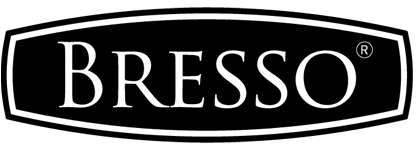Introduction:
The dough mixer machine is a vital piece of equipment in the baking industry, streamlining the dough preparation process and enhancing efficiency. However, the costs associated with purchasing these machines can vary significantly. This essay delves into the several factors that contribute to dough mixer machine prices, shedding light on the complexities involved in determining their value. By understanding these factors, discerning parties can make informed decisions, optimizing their investments in bakery equipment.
Quality and Performance:
One key determinant of dough mixer machine prices is the quality and performance of the equipment. Higher-priced machines often possess advanced features, superior build quality, and more efficient operating systems. Renowned manufacturers certify such machines under stringent quality control measures, ensuring durability, longevity, and enhanced functionality. Consequently, the quality and expected performance level are significant factors in the pricing structure.
Capacity and Size:
The size and capacity of dough mixer machines also play a crucial role in determining their price points. Machines with larger capacities, capable of handling higher dough volumes, are generally more expensive. Such models enable commercial bakeries to meet high-demand scenarios efficiently. Conversely, smaller models suited for home use or smaller productions tend to be cheaper, as their capabilities are limited.
Motor Power and Technology:
Powerful motors and advanced technological features are prominent selling points for dough mixer machines. Higher motor power facilitates efficient mixing of dense or large batches of dough, positively impacting the performance and productivity of the equipment. Additionally, innovative technologies like programmable settings, user-friendly interfaces, and noise reduction mechanisms drive up the prices of these machines due to the added convenience and customer interest they generate.
Brand Reputation and Market Position:
Well-established brands with a higher market position often carry a premium price tag for their bakery equipment. These companies have invested substantial resources in research and development, resulting in technologically advanced and reliable products. Consequently, the goodwill, trust, and reputation associated with these brands contribute to the higher prices, as customers are willing to pay extra for a proven name in the industry.
Certifications and Compliance:
Dough mixer machines that comply with safety and food hygiene regulations, as well as industry certifications, may come at a higher price. These certifications ensure that the machines adhere to quality standards, thereby minimizing health risks and ensuring optimal performance. Manufacturing machines that meet these requirements entail additional costs, ultimately reflected in the final price.
Supply and Demand Dynamics:
Economic principles of supply and demand heavily influence dough mixer machine prices. If the demand surpasses the available supply, manufacturers might increase prices to maximize profits or maintain the equilibrium. Conversely, when market demand weakens, manufacturers may lower the prices to incentivize purchases and maintain market share. External factors like market competition, technological advancements, and global economic conditions also contribute to the fluctuations in machine prices.
Additional Features and Attachments:
Dough mixer machines equipped with additional features and attachments generally command higher prices. For instance, models with specific functionalities for kneading, dough forming, or mixing other ingredients may cost more due to their added versatility. Specialized attachments for pastry making, pasta extrusion, or cookie shaping can also add to the overall price, catering to specific bakery requirements.
Product Lifespan and Warranty:
Longevity is an essential factor for potential buyers to consider. High-quality dough mixer machines often come with longer lifespans due to their durable construction and materials. Moreover, machines with extended warranty periods reflect the manufacturer’s confidence in their offerings, making them more desirable but also more expensive.
Distribution and Maintenance Costs:
The costs associated with distribution, logistics, and maintenance contribute to the final price of dough mixer machines. Larger models often require specialized handling, transportation, and installation, which leads to higher distribution costs. Additionally, access to professional maintenance services and the availability of spare parts influence the price due to the peace of mind these factors instill in customers.
Conclusion:
The pricing of dough mixer machines is a multifaceted process influenced by several factors. Understanding these factors, including quality and performance, capacity, motor power, brand reputation, certifications, supply and demand dynamics, additional features, product lifespan, and distribution and maintenance costs, is crucial for prospective buyers. By considering these variables, buyers can make informed decisions, ensuring value for their investment in the baking industry.

